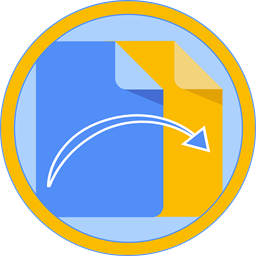Bjorn's Docs2Slides
Swiftly create new presentations
- a Google Docs extension -
Sorry, this app has been decommissioned.
Quickly create Google Slides presentations from Google Docs content.
Text formatting
The conversion of a Doc to a Slide presentation is controlled by using the 7 different paragraph styles (e.g. Title, Subtitle etc) available in Google Docs.
Please note that only paragraph text is converted; not images, tables, lists, links and "local" text formatting such as bold words.
Title paragraphs starts a new slide in the presentation and creates a new text box.
Paragraphs using the other styles, Subtitle, Heading 1, Heading 2 etc are converted to text boxes on the "current" slide.
To customize the conversion you have 8 conversion styles available: Master, Title, Subtitle, Heading 1...
The Master conversion style sets properties for the Master slide.
The other - Title, Subtitle, etc, conversion styles sets properties for the text boxes that are created for the source paragraphs.
Properties you can use in the conversion styles are:
Master slide conversion style
| Background color | The background color. You can use both CSS names (e.g. yellow, lightblue) or CSS/HTML # syntax, e.g. #00ff00. |
| Background gradient | The background gradient - the add-on will create an image for the gradient, will make your slide deck load a bit slower... |
| Background pattern | A background pattern - the add-on will create an image for the pattern, will make your slide deck load a bit slower... |
Text box conversion styles
| X |
The X position of the generated slide item. If not set, defaults to 'not set'.
You can use 'right' to place the item next to right edge or 'center' to center the object horizontally.
You can use a percentage value to place object for example at 10% of the width of the slide.
Note that if you set the 'X' property, the generated text box WILL NOT cuase the next text box to be placed after it. You can use this feature to for example place certain text boxes (e.g. Subtitle) in corners of the slide (e.g. using X=right, Y=bottom) |
| Y | The Y position of this slide item. If not set, defaults to the bottom of the previous item. You can use 'bottom' to place object at the bottom of the slide or 'center' to center the object vertically. You can use a percentage value to place object for example at 10% of the height of the slide. |
| Width | The width of this slide item. If not set, defaults to 100%. Use either pixels or percentage of slide width. |
| Height | The height of this slide item. If not set, defaults to the font size. Use either pixels or percentage of slide width. |
| Font size | The font size of this textbox, defaults to 24 for Title text boxes. Use either pixels or percentage of slide height. |
| Font family | The font family of this textbox, default to 'Arial'. |
| Color | The text color. You can use both CSS names (e.g. yellow, lightblue) or CSS/HTML # syntax, e.g. #00ff00. |
| Background color | The background color. You can use both CSS names (e.g. yellow, lightblue) or CSS/HTML # syntax, e.g. #00ff00. |
| First line indent | Sets the first line indent of a text box. Use either pixels or percent of width. |
| Padding, left | Sets the amount of space between text and left edge of box. |
| Padding, right | Sets the amount of space between text and right edge of box. |
| Padding, top | Sets the amount of space between text and top edge of box. |
| Padding, bottom | Sets the amount of space between text and bottom edge of box. |
| Margin, left | If the Width is in percent, removes this amount from the width. If the Width is in pixels, moves the element to the right. |
| Margin, right | If the Width is in percent, removes this amount from the width. If the Width is in pixels, moves the element to the left. If you place an element at the right edge with X=right, then you can move it, for example, 50 pixels to the left with MarginRight=50. |
| Margin, top | If the Height is in percent, removes this amount from the height. If the Height is in pixels, moves the element downwards. |
| Margin, bottom | If the Height is in percent, removes this amount from the height. If the Height is in pixels, moves the element upwards. If you place an element at the bottom edge with Y=bottom, then you can move it, for example, 50 pixels to the upwards with MarginBottom=50. Setting this also moves the next item in the slide, it will be placed MarginBottom pixels lower. |
Check out this short YouTube video.
Support
Note - if you have installed the add-on and the add-on submenu only contains the 'Help' option - PLEASE RELOAD THE DOCUMENT - and the other options will appear.
Please report bugs here or reach out 2 me with questions @ support@backlund.org.
Follow me at Instagram @bjornsplayground and check out more videos at my YouTube channel.
You can view our privacy policy here.


